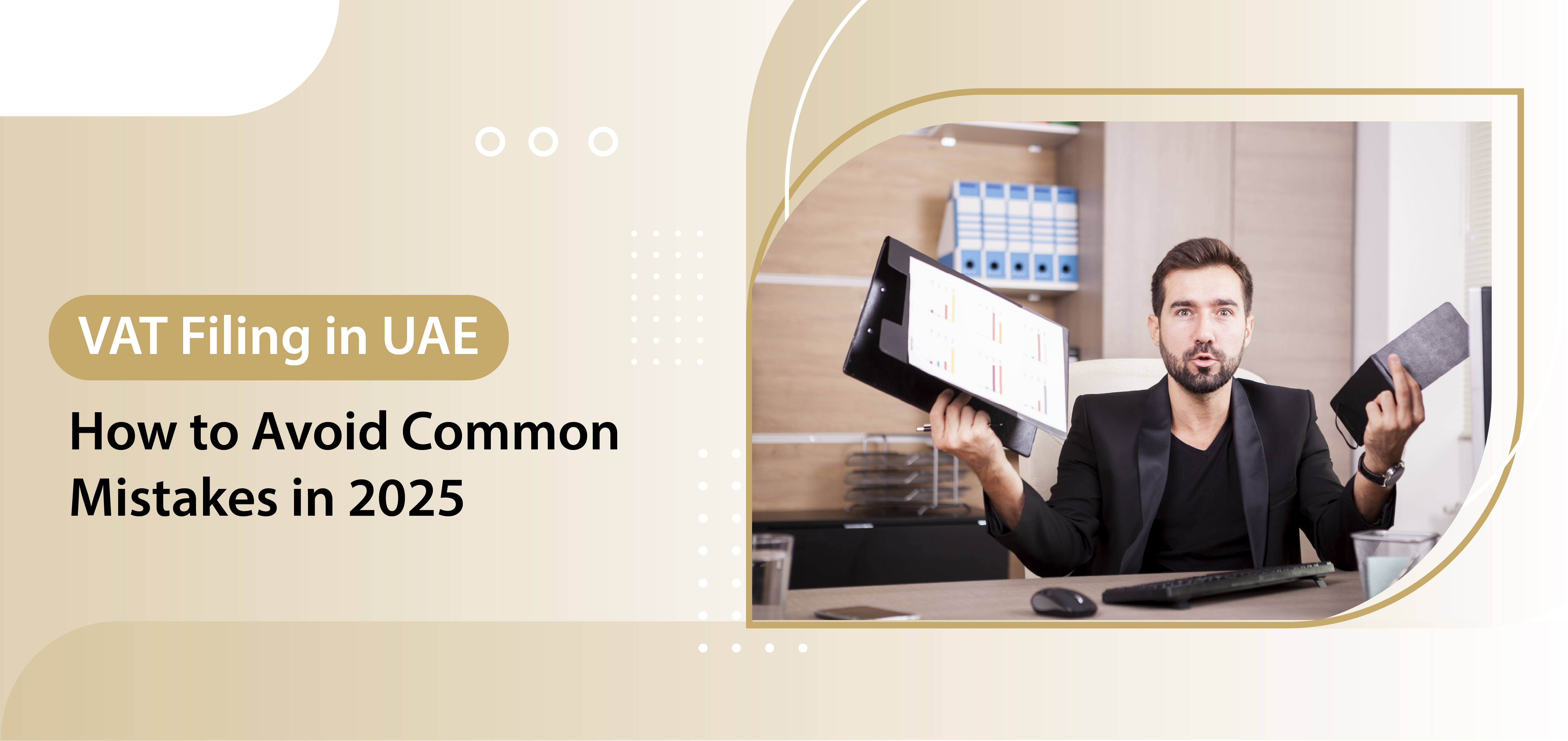
05 Aug 2025
Proper bookkeeping is necessary for businesses to maintain a smooth financial operation. It is a crucial part of VAT compliance in Dubai and other Emirates. It helps businesses to avoid penalties, facilitates a streamlined audit process, and ensures financial transparency and credibility.
Why Accurate Bookkeeping is a Legal Necessity?
As per Federal Decree-Law No. 8 of 2017 and the Cabinet Decision No. 74 of 2023, all taxable persons subject to VAT are required to keep detailed and fair accounting records and documentation.
The records must be kept for at least a duration of five years, and in some cases, it can go up to seven years. These include maintaining profit and loss accounts, balance sheets, inventory statements, wage registers, and supporting documentation such as contracts and invoices.
Importance of VAT Reconciliation
VAT reconciliation means making sure that the VAT reported in your return matches your internal records. Any differences between actual and reported VAT liabilities could trigger audits and result in FTA VAT penalties in the UAE.
Reconciliation involves matching output and input tax across purchase and sales ledgers, ensuring fairness before filing the return.
How to Prepare for an FTA Audit?
The FTA has the power to conduct audits without giving any prior notice. As per Article 2 and Article 4 of the Cabinet Decision No. 74 of 2023, businesses must store records in a manner that allows for quick and reliable access.
During an FTA audit, businesses need to present complete records in a readable format, which includes digitally stored data.
What are the FTA VAT Audit Requirements for 2025?
Businesses must be abreast of the FTA VAT audit requirements, where original documentation is accessible and translated Arabic copies are available on demand. Additionally, businesses must provide archived financial documents that support all tax calculations. Otherwise, this might result in strict fines and penalties.
Create an internal VAT compliance checklist in the UAE. In this checklist, attention may be given to aspects such as validation of tax invoices, proper application of VAT rates, reconciliation, and on-time filing of VAT returns.
Common Bookkeeping Mistakes that Lead to Penalties
Businesses in the UAE may face challenges due to inaccurate record-keeping. Here are some of the most common bookkeeping mistakes that businesses should avoid:
1. Missing or Incomplete Tax Invoices: The most common error is not raising or holding on to proper tax invoices for each transaction. All VAT-qualifying supplies must be supported by an accurate invoice with the required information as outlined in the FTA guidelines. Outstanding invoices result in disallowed input tax claims.
2. Incorrect VAT Rate Application: Incorrect use of VAT rates for taxable, zero-rated, or exempt supplies can misrepresent your VAT liability. It can be due to inadequate staff training or a misunderstanding of FTA classifications, which can lead to heavy FTA VAT penalties upon audit.
3. Failure to Maintain Backup Documentation: Supporting documentation, like contracts, payment vouchers, shipping documents, and customs declarations, must be retained to explain amounts recorded in VAT returns. Failure to maintain such documents precludes input tax claims from being sustained or accounting for differences noted upon audit.
4. Manual Errors in VAT Reconciliation: Manual reconciliations of VAT are susceptible to data entry errors, mistakes, and omissions. Inaccuracies of this nature may lead to mismatches between VAT returns filed and actuals, and FTA scrutiny is likely to result.
5. Ignoring Record Retention Guidelines: As per Cabinet Decision No. 74 of 2023, records need to be retained for at least five years, and for a period not exceeding seven years in specific industries like real estate. Early destruction of records or failure to acquire them in an auditable form leads to unnecessary UAE VAT fines and penalties.
6. Late Submission of VAT Returns: Businesses are required to file VAT returns by the 28th day following the end of each tax period. Delays—even by a single day—incur fines starting from AED 1,000 and increasing with repetition. Lack of internal controls and calendar reminders are key reasons behind such avoidable lapses.
FAQs
Q1: What are the documents needed for FTA audits?
A: Companies need to keep ledgers, tax invoices, contracts, customs records, payroll records, and Arabic-translated copies in case they are asked for them.
Q2: How frequently does the FTA perform VAT audits?
A: It can happen at any time, particularly if there are differences in your VAT returns.
Q3: What is the period for retaining VAT documents?
A: Five years in general cases, and seven years in the case of real estate documents.
Q4: Is a VAT penalty appealable for a business?
A: Yes, an appeal request is acceptable from a business with supporting documents.
Stay Compliant with AMCA Auditing
Ensure that your business is audit-proof and compliant. Engage AMCA Auditing today for VAT reconciliation services, documentation support, and end-to-end compliance. Visit www.amcaauditing.com or call +971 4 240 8784 to schedule a free consultation.


.jpg)

